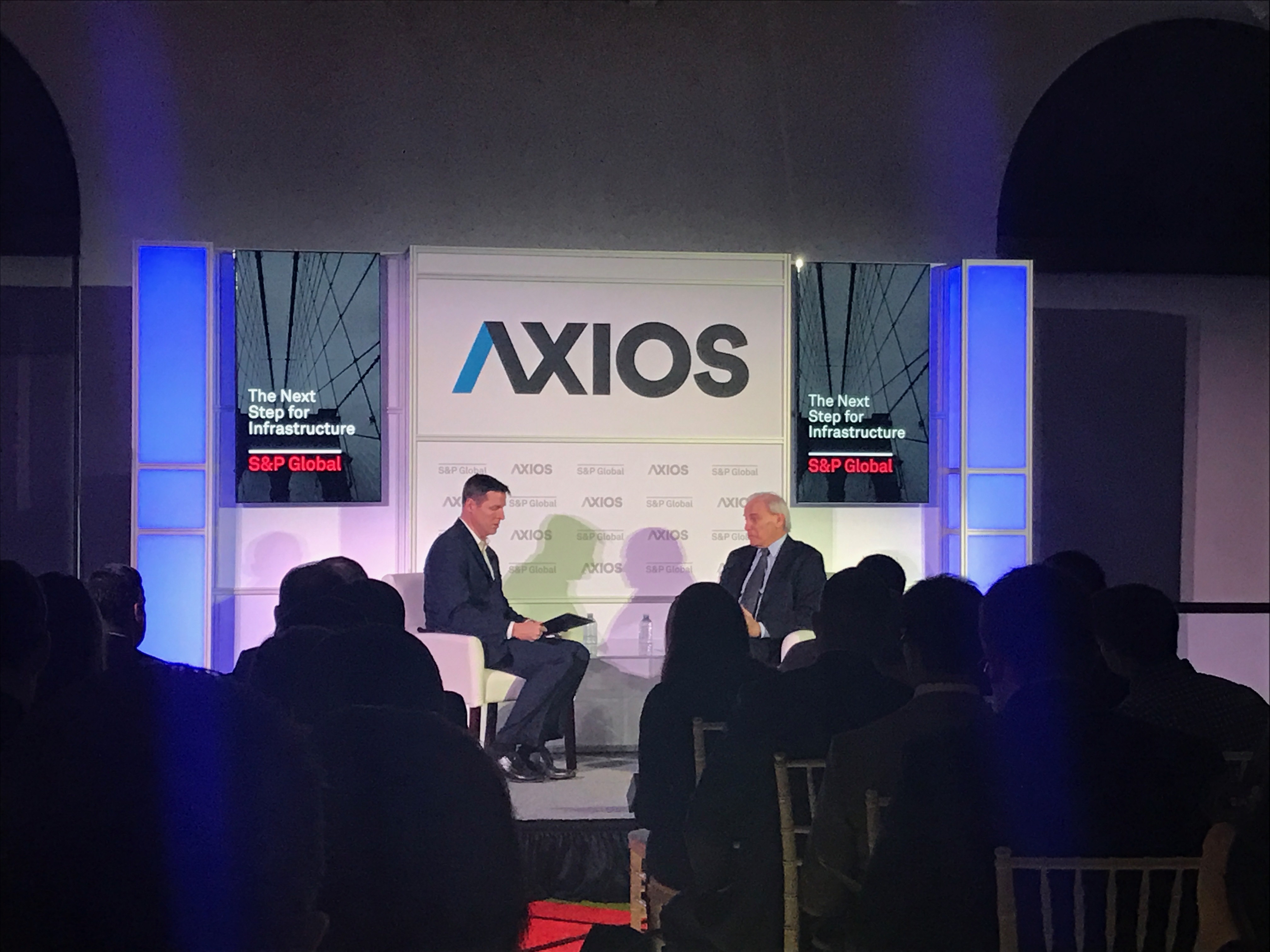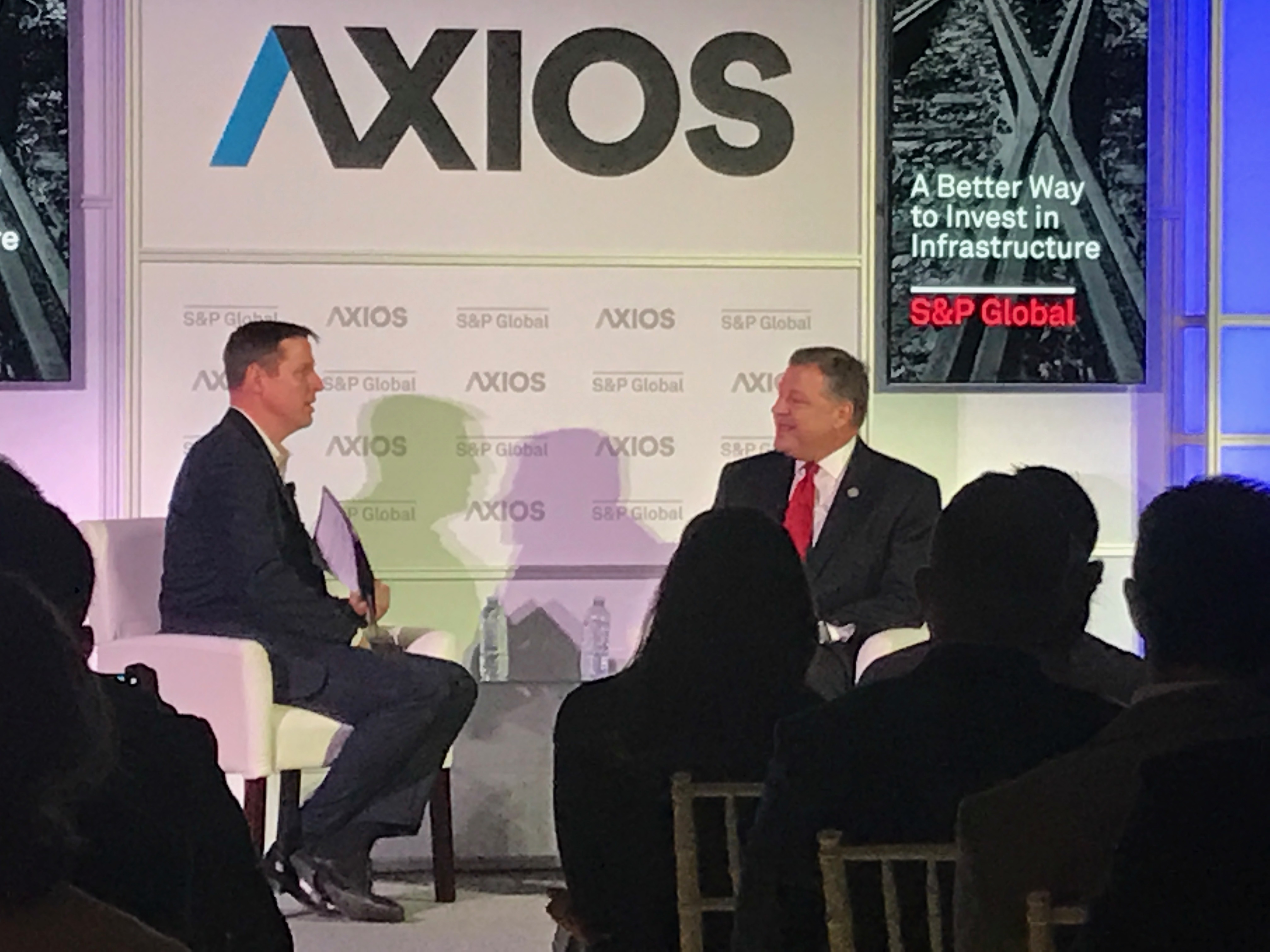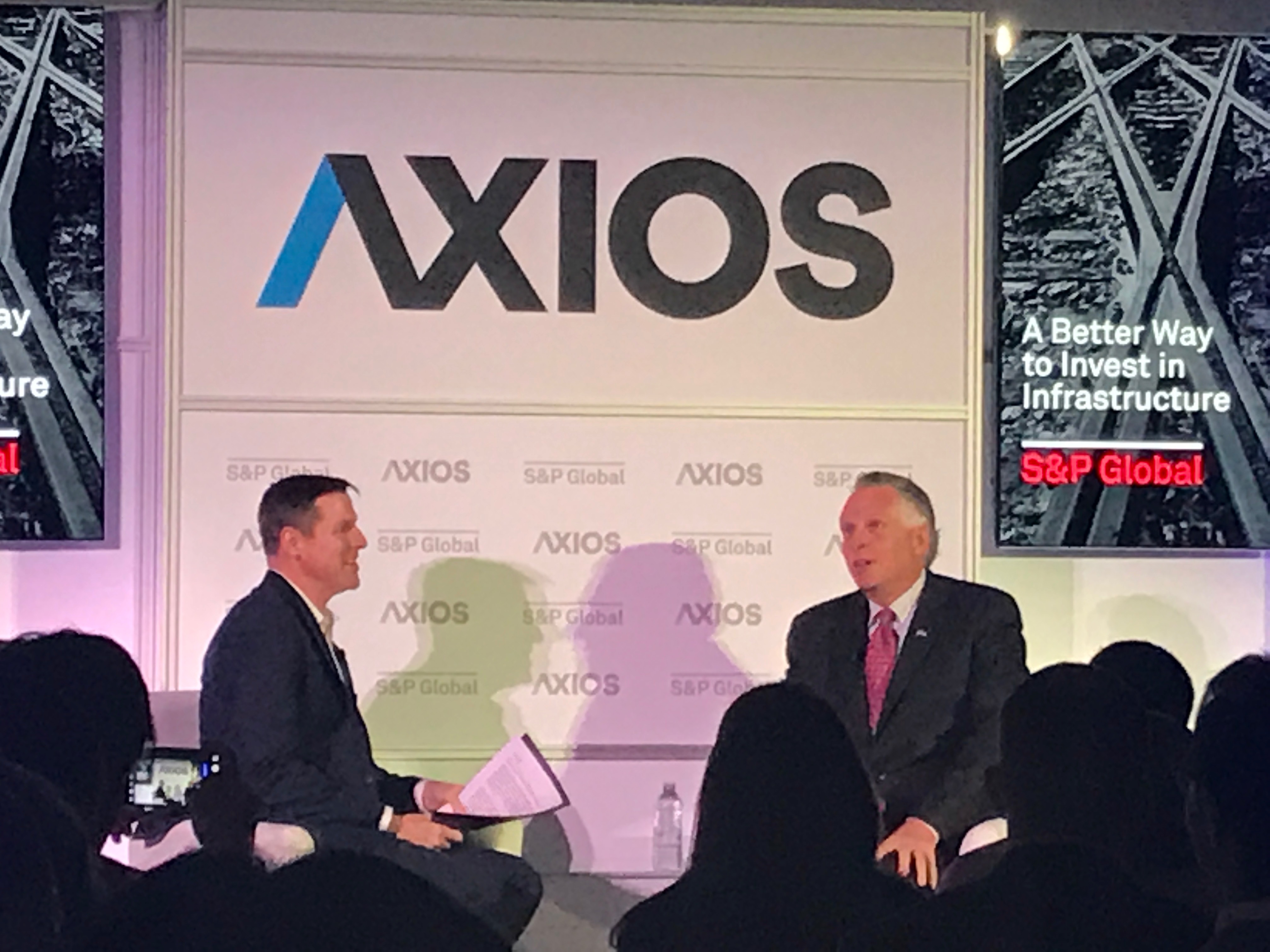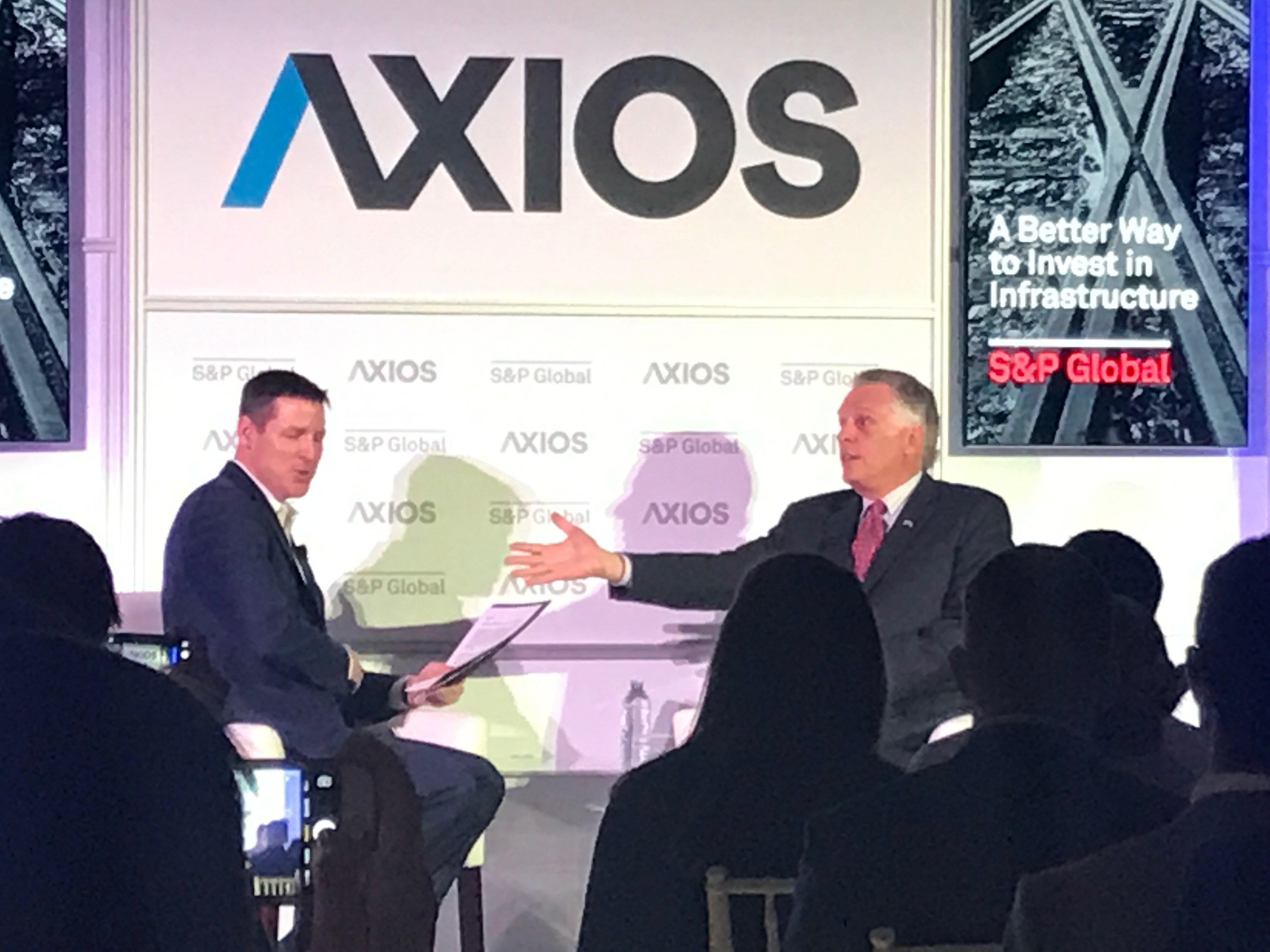March 23, 2017
In a political climate where the stark divisions between Republicans and Democrats grow deeper every day, infrastructure continues to shine as the potential source for bipartisan compromise.
It was on this premise that Axios, the media upstart led by the founders of POLITICO, organized its first transportation-related event, Journey from Route 66: A Discussion on America’s Infrastructure.
A series of three interviews with transportation leaders featured bipartisan perspectives from Emil Frankel of the Eno Center for Transportation, Virginia Governor Terry McAuliffe (D), and House Transportation Chairman Bill Shuster (R-PA).
“When you think about the interstate highway system, many people don’t talk about the jobs that were created,” Frankel told Tim Berry, Executive Vice President of Axios.
Moreover, said Frankel, the system had a tremendous positive impact on the capacity of American companies to move goods, manage their supply chains, and simplify logistics.
Contesting recent assertions that the nation’s highways were crumbling, Frankel suggested that a better description is “deteriorating and heavily congested.” The problem, he said, is the lack of consistent and robust funding sources for infrastructure – especially since the gas tax has not been increased in over 20 years.
While Frankel, McAuliffe, and Shuster agreed on many topics, one particular issue stood out. Public-private partnerships (P3s), which leverage resources from both government and private entities to complete infrastructure projects, have been attracted significant attention in recent years as a method for bridging gaps in funding.
However, all three panelists agreed that, as McAuliffe put it, P3s are “great, but they’re not a panacea for infrastructure investment.”
Frankel insisted that federal, state, and local governments would need to create incentives that would attract investors to infrastructure projects, saying “private investors aren’t going to fund a bridge just because they’re good guys.”
 Shuster agreed in his interview shortly afterwards, stating that P3s are merely a “tool in the toolbox” to augment public financing.
Shuster agreed in his interview shortly afterwards, stating that P3s are merely a “tool in the toolbox” to augment public financing.
Since last year, President Donald Trump has touted an as yet unseen $1 trillion infrastructure proposal that has remained in stasis as Congress has wrestled with controversial cabinet nominations, hearings for Supreme Court nominee Neil Gorsuch, and the political complexities of repealing and replacing the Affordable Care Act.
While details of Trump’s infrastructure plan have been scarce, Shuster indicated that the plan is currently being formulated and will likely be revealed in the fall.
The congressman indicated that the infrastructure bill has a broad base of support and will be “a legislative vehicle with lots of excitement” surrounding it. And as the bitterly divided 115th Congress slogs through the GOP’s 2017 to-do list, he suggested that infrastructure could be a “sweet chaser” that could bring Democrats on board for a bipartisan initiative.
This may hold true, judging by the Virginia governor’s expressed dreams of reinvesting in the electric grid, expanding high speed rail, and helping the beleaguered Washington, D.C. subway system.
“We need BIG, BOLD INFRASTRUCTURE!” McAuliffe exclaimed.
And Shuster’s pet issue, air traffic control reform, may have a role to play. The budget outline that the White House released last week included a proposal to remove the provision of air traffic control (ATC) from the Federal Aviation Administration and shift ATC operations to an independent, non-governmental organization.
“When it came out, it was like Christmas morning,” Shuster beamed. ATC reform, he continued, will modernize aviation in the United States while saving the federal government money and improving aviation safety.
Last year, Shuster introduced a bill that would spin ATC off into an independent, non-profit entity. And while the proposal faced resistance from the appropriations committees and general aviation advocates last year, Shuster suggested it may garner enough support to pass both chambers this time around.
Frankel agreed that ATC reform would have a positive impact on the nation’s aviation industry. Citing Eno’s recent report on the topic, he said that ATC reform would be a major component in solving pressing aviation issues.
Of course, a conversation about transportation in 2017 is never complete until autonomous vehicles are mentioned.
While Shuster’s committee is not responsible for the implementation of autonomous vehicles – that falls under control of Energy and Commerce, which has oversight of the National Highway and Traffic Safety Administration (NHTSA)’s vehicle safety regulation – he said that he supports the development of the lifesaving technology.
“It will be big,” Shuster declared, “all of the roads that we build in the next 5-10 years, autonomous vehicles will be on them.”
McAuliffe attested that Virginia is also preparing for the future of autonomous vehicles by establishing testing sites, implementing smart infrastructure, and assessing its potential benefits for the state.
And, just like autonomous vehicles and transportation, a Terry McAuliffe appearance is incomplete without a few wise cracks.
“You live in Maryland?!?” McAuliffe teased as he sat down next to Berry. “How do you like paying those taxes?”



 Shuster agreed in his interview shortly afterwards, stating that P3s are merely a “tool in the toolbox” to augment public financing.
Shuster agreed in his interview shortly afterwards, stating that P3s are merely a “tool in the toolbox” to augment public financing.


